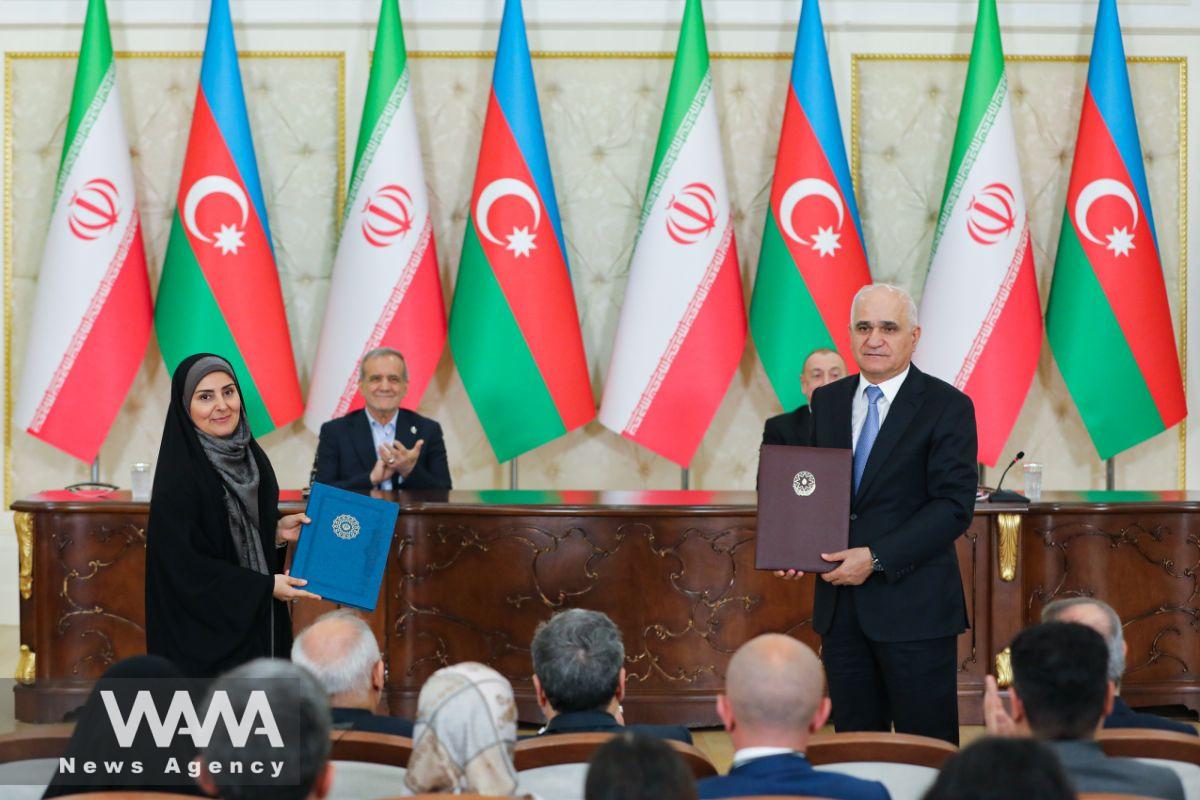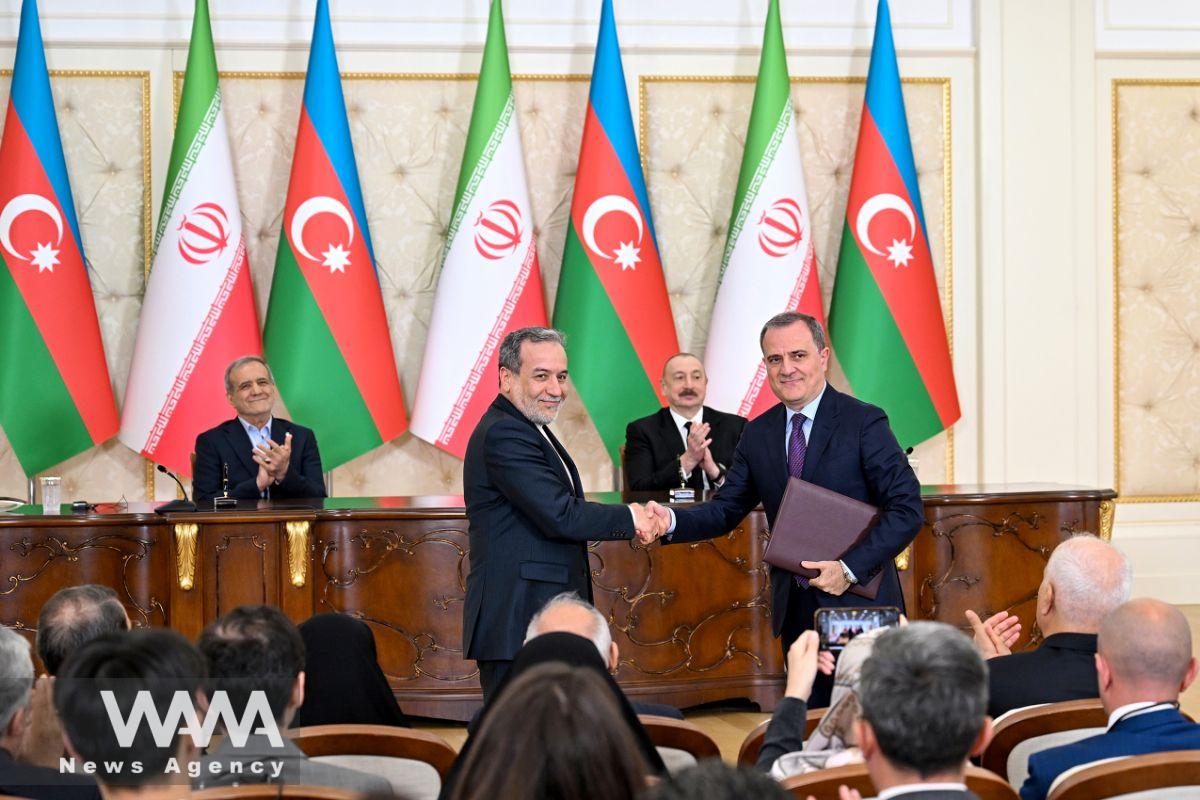The Trip to Baku: A Journey That Was Not Necessary
WANA (May 01) – Masoud Pezeshkian, the President of Iran, made a one-day trip to Baku, the capital of the Republic of Azerbaijan, amid numerous questions and controversies surrounding the visit. This marks the second official meeting between the presidents of Iran and Azerbaijan in the past six years.
The last presidential-level visit was made by Hassan Rouhani, and according to diplomatic protocol, the next meeting should have taken place in Tehran. Although preparations for President Aliyev’s visit to Tehran had been made during the previous administration, Pezeshkian disregarded this diplomatic convention and traveled to Baku instead.
The trip took place during the tragic incident at Shahid Rajaee Port, which has so far claimed the lives of over 70 of our compatriots, raising considerable surprise and criticism.
Such an incident was expected to be prioritized by the president of the reformist administration. The conduct of the late Ebrahim Raisi, the former president of Iran (who died in a helicopter crash), during the 2023 terrorist attack in Kerman serves as a good example in this regard; he canceled his trip to Turkey due to the tragic event and prioritized domestic affairs to directly manage the crisis.

Farzaneh Sadegh Malvajerd, Iran’s Minister of Roads and Urban Development, Trip to Baku. President.ir/ WANA News Agency
However, in this critical situation, President Pezeshkian proceeded with his trip to Baku without regard for domestic urgencies and delegated the management of the incident solely to the interior minister.
The presence of several cabinet members on the Baku trip—including the minister of roads, who bears direct responsibility for the incident—also appears to be an illogical and unjustifiable decision.
The behavior and appearance of President Pezeshkian during this trip did not correspond appropriately with the country’s critical situation and the bloody incident at Shahid Rajaei Port.
It was expected that the head of the fourteenth government, who was absent from the country during the national mourning period and had traveled to the Republic of Azerbaijan for a relatively insignificant visit, would at least show respect for this tragic event and express solidarity with the pain and suffering of the victims’ families.
Instead of holding events such as a poetry reading gathering during this trip, he should have demonstrated the necessary composure and the demeanor of a compassionate official.

Iran’s Foreign Minister, Abbas Araghchi. Trip to Baku. President.ir/ WANA News Agency
On the other hand, Iran’s embassy in the Republic of Azerbaijan has been without an ambassador since 2024, following the end of Abbas Mousavi’s tenure, and has since been managed solely by a chargé d’affaires.
This is an unusual and even unprecedented situation: a president traveling to a country where there is no official diplomatic representative (ambassador) present.
This raises the serious question of whether this one-day trip, given the absence of an ambassador and the critical domestic situation, was truly so vital and unavoidable that standard diplomatic protocols in international relations had to be disregarded.
Overall, undertaking such a trip amid the country’s critical situation is in clear contradiction with public expectations and diplomatic norms, and it underscores the need to reconsider priorities and the approach to crisis management.












